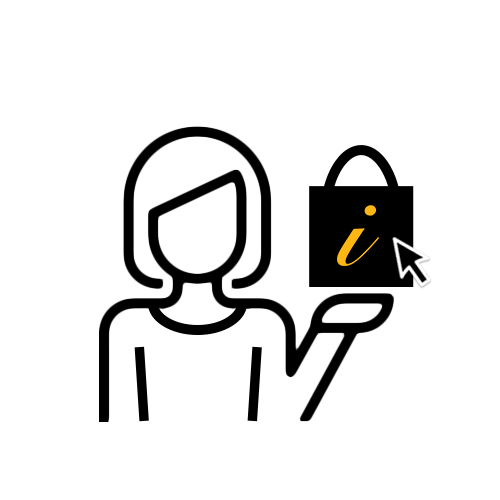NIASTOTO ⚡ Daftar Link Toto Togel 4D Online & Agen Slot Online 777 Gacor
NIASTOTO ⚡ Daftar Link Toto Togel 4D Online & Agen Slot Online 777 Gacor
$999 SGD
Unit price peror
Keamanan Di NIASTOTO!
Pemenang Terkini
Get it fast
Pickup
Loading store
Error loading
Limited Time Promotion
Limited Time Promotion
Apakah NIASTOTO menyediakan bonus dan promo khusus untuk member baru atau lama?
Apakah NIASTOTO menyediakan bonus dan promo khusus untuk member baru atau lama?
Ya, banyak sekali! Member baru langsung dapat bonus deposit pertama hingga 100% plus paket free spin di slot 777 gacor pilihan. Untuk member lama ada cashback harian 5-12%, reload bonus setiap akhir pekan, event turnamen slot dengan hadiah puluhan juta, serta referral seumur hidup yang memberikan komisi tanpa batas. Semua promo bisa diklaim mudah di dashboard, cocok buat tambah modal main toto togel 4D dan agen slot online 777 gacor.
Bagaimana cara mengatasi jika link NIASTOTO terblokir oleh provider internet?
Bagaimana cara mengatasi jika link NIASTOTO terblokir oleh provider internet?
Sangat mudah! NIASTOTO punya tim update link alternatif resmi setiap hari yang anti-nawala dan anti-blokir. Cukup hubungi CS melalui livechat, Telegram, atau WhatsApp 24 jam, kirim pesan singkat seperti 'link baru' atau 'alternatif', langsung dikirim link terbaru yang aman dan cepat. Server menggunakan teknologi VIP sehingga akses tetap lancar bahkan di jaringan terbatas, memastikan kamu bisa main slot 777 gacor bet 200 dan toto togel 4D kapan saja tanpa gangguan di 2026.
Lihat Cara Akses











Limited Time Promotion
Financing
Trade in popup


Trade-In
Explore the devices to Pelajari Selengkapnya.
Trade-in your device in 3 easy steps!
Please contact us at [email protected] if you have other enquiries. Trade-in program is provided by "Carousell".
Frequently Asked Questions
What do I need to bring along?
You will be required to bring your charger and cable for laptops.
What if I do not like the value after assessment?
You can choose to not accept the trade-in value, but the value shown is final.
Can multiple devices be traded in during the same transaction?
Unfortunately, only one device can be traded in per transaction.
Do I get to keep the memory card from the trade-in devices?
We recommend that you remove and keep all your memory cards before you trade-in a device
Would I be able to get back my old device back after the trade-in?
You would not be able to retrieve your old device as all trade-ins are final. Prior to trading in your device, we recommend backing up all your important content such as contacts, photos, videos, etc.
Can I trade-in my device if it does not work?
We would not be able to assess your device if we are unable to power on your device.
What if my device is not found in the trade-in device list?
You can head down to our stores to get your device assessed by our iStudio Experts to check if it is accepted.
Collapsible content
Terms and Conditions
- Customer affirms that s/he is at least legally 18 years of age.
- "Customer" means the undersigned that is the owner of the Product or has been authorised by the owner of the Product to make decisions on the Product.
- The Trade-in programme is provided to iStudio customers by Laku6 as a third party company. Apple is not a party in the transaction.
- Laku6 and iStudio reserve the right to refuse, cancel, or limit the programme for any reason and may change these terms and conditions at any time without prior notice.
- The Programme is provided for lawful purposes only, to the extent permitted by law, Customer agrees to indemnify iStudio, Laku6, its affiliate and any of its directors, officers, employees, affiliates, subsidiaries or agents from and against claims brought against any of them arising from Customer's breach of terms and conditions of the Programme.
- iStudio trade-in programme is only available at all iStudio stores (excluding Airport Terminal Stores)
- Total trade-in value is not transferable.
- iStudio reserves the right to refuse any customer's eligibility at any time in its discretion in the even of such customer's breach or suspected breach of any of the terms and conditions herein without prior notification or any liability to such customer whatsoever.
- iStudio reserves the right to vary any term or condition. iStudio will, where it is practicable to do so, give customers advance notice (which may be through written notice, electronic mail letters, iStudio website, or such other forms as iStudio deems appropriate) of such changes.
- This iStudio Trade-in programme is limited to one (1) device per eligible trade-in.
Why Shop Online
Jadwal Pasaran Resmi
Pantau jadwal keluaran togel favorit Anda secara akurat dan real-time.
| Pasaran | Frekuensi Draw | Jam Tutup (WIB) |
|---|---|---|
| Toto Macau Pools | 4x / 5x Sehari | 13:00, 16:00, 19:00, 22:00 |
| Singapore Lotto | Harian | 17:30 |
| Hongkong Lotto | Harian | 22:30 |
| Sydney Lotto | Harian | 13:50 |
| Cambodia Lotto | Harian | 11:50 |
NIASTOTO ⚡ Daftar Link Toto Togel 4D Online & Agen Slot Online 777 Gacor
NIASTOTO merupakan tempat daftar link toto togel 4D online terbaik sekaligus agen slot online 777 gacor paling dicari di tahun 2026. Platform resmi ini menghadirkan pengalaman judi online lengkap dalam satu akun: toto togel 4D dengan pasaran resmi terlengkap seperti Macau Pools, Hongkong, Sydney, Singapore, Taiwan, Magnum 4D, dan banyak lagi – result real-time akurat, draw berkali-kali sehari, serta hadiah 4D terbesar tanpa potongan apa pun di NIAS TOTO









